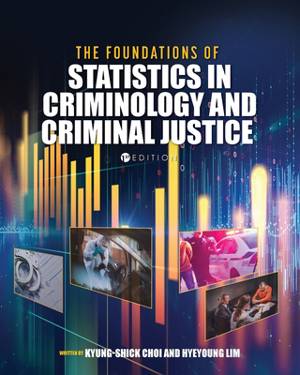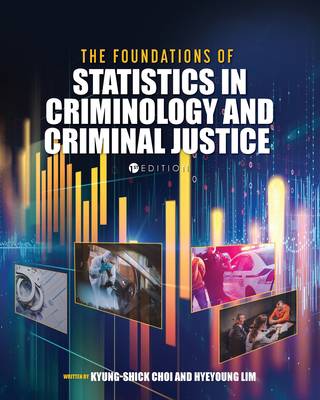
- Retrait gratuit dans votre magasin Club
- 7.000.000 titres dans notre catalogue
- Payer en toute sécurité
- Toujours un magasin près de chez vous
- Retrait gratuit dans votre magasin Club
- 7.000.0000 titres dans notre catalogue
- Payer en toute sécurité
- Toujours un magasin près de chez vous
The Foundations of Statistics in Criminology and Criminal Justice
Kyung-Shick Choi, Hyeyoung LimDescription
The Foundations of Statistics in Criminology and Criminal Justice underscores the purpose and role of statistics in criminal justice practice, emphasizes major analytical techniques, and covers two key types of statistics-descriptive and inferential. The text helps students build a fundamental background in analytical methods within the context of criminal justice.
Part I demonstrates the importance of statistics and its practical application within criminology and criminal justice. Part II introduces students to descriptive statistics. They learn about measures of central tendency and measures of variability within empirical research in the criminal justice system. In Part III, students examine the issues of probability and the normal curve, which explain how criminal justice data sources and research can be used for decision-making tools with an adequate degree of scientific validation. Part IV explores inferential statistics as a decision-making aid that plays a pivotal roles in criminal justice policy development and planning. The final section demonstrates practical applications within the discipline and summarizes analytical methods.
Accessible and engaging, The Foundations of Statistics in Criminology and Criminal Justice is an exemplary resource for courses in statistics in criminology and criminal justice.
Spécifications
Parties prenantes
- Auteur(s) :
- Editeur:
Contenu
- Nombre de pages :
- 240
- Langue:
- Anglais
Caractéristiques
- EAN:
- 9781516528547
- Date de parution :
- 31-07-20
- Format:
- Livre broché
- Format numérique:
- Trade paperback (VS)
- Dimensions :
- 203 mm x 254 mm
- Poids :
- 485 g

Les avis
Nous publions uniquement les avis qui respectent les conditions requises. Consultez nos conditions pour les avis.






